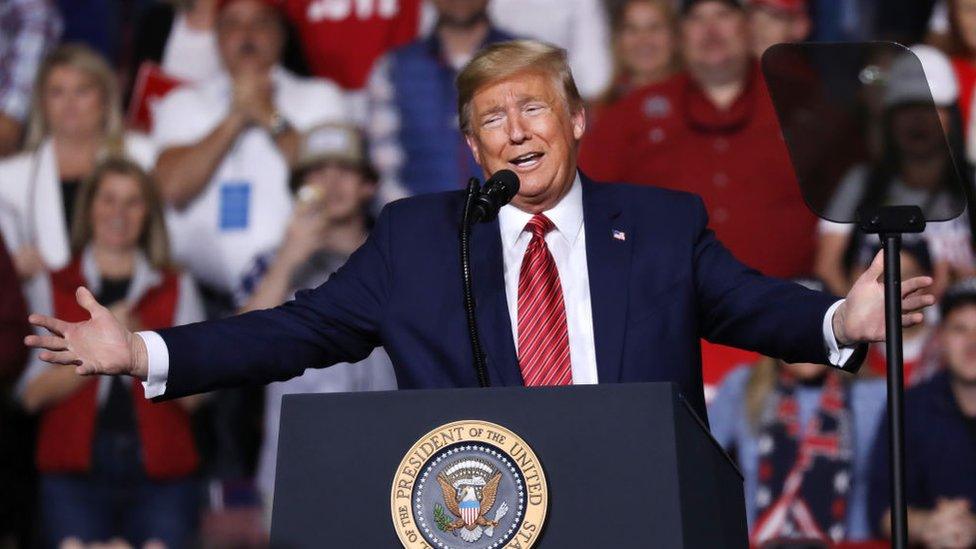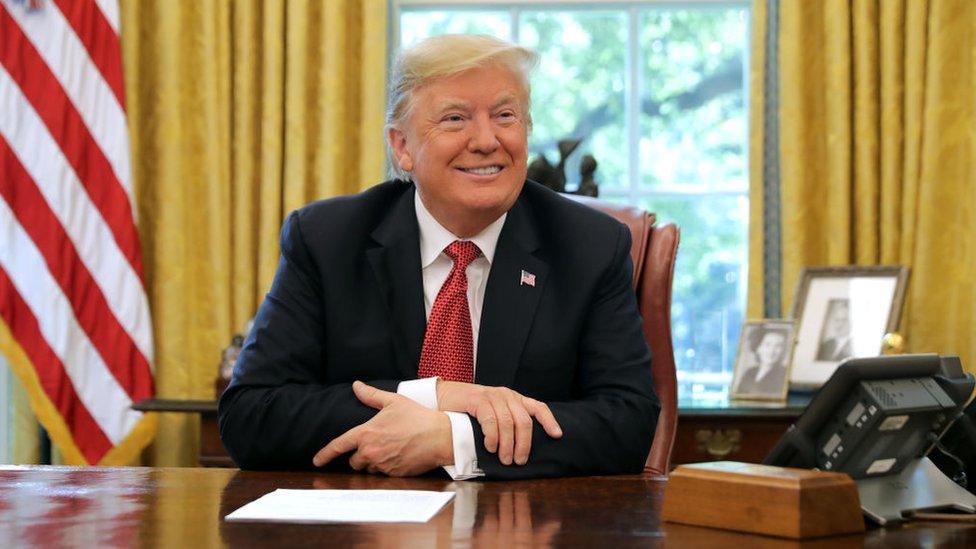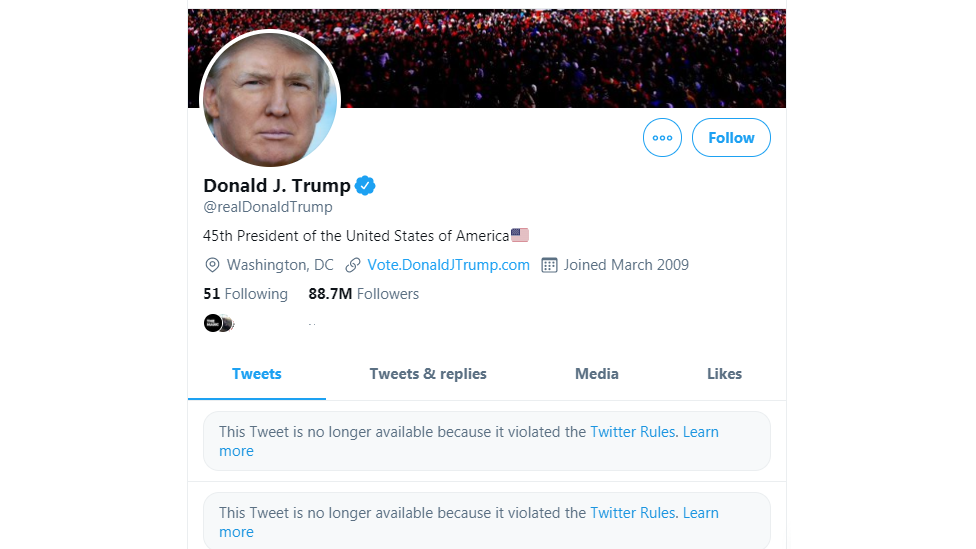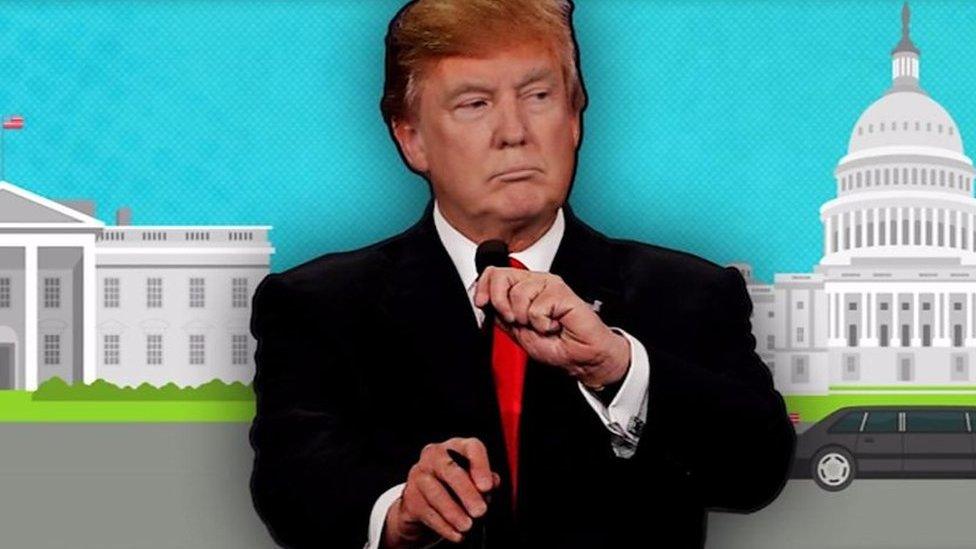Donald Trump: Why do some people still think he won the US Election?
- Published
- comments
US election Trump
There's now only eight days to go until Donald Trump's time as president of the United States comes to an end and president-elect Joe Biden takes up the top job instead - but many of President Trump's supporters still haven't accepted the election result.
They claim that Donald Trump won, and last week some of his supporters broke into the US Capitol building to try to stop votes being counted that would officially declare Joe Biden as the winner.
But although the president has repeatedly claimed that the election was ''stolen" from him, he has never given any proof that there was anything wrong with how the election was carried out or the result itself.
So why do many of his supporters believe this?
They trust what Donald Trump says

When Donald Trump become the 45th President of the United States four years ago, he attracted huge crowds wherever he went, and many of those supporters have stuck by Trump every step of the way.
The BBC's disinformation specialist, Marianna Spring, says there was anger amongst Trump supporters even before the presidential election because "President Trump, on his own Twitter feed, promoted and suggested that this election was going to be rigged, that there was going to be fraudulent voting".
It's not only his most loyal supporters who have believed him.

Trump will soon be leaving the White House and Joe Biden will take over as the US president
A poll conducted by news company Reuters/Ipsos right after the election showed that about half of all Republicans believed President Donald Trump "rightfully won" the US Election, which shows that his refusal to accept Joe Biden's victory did affect the public's confidence in American democracy, particularly among Republican voters.
More Americans seemed suspicious about the election process than they were four years ago, with 55% of adults saying they believed the election was "legitimate and accurate", seven points less points than the poll showed after the 2016 election.
In fact in the 2020 election, Donald Trump got millions more votes than the last election in 2016 where he won, so many people assume that would have made him the winner.
But because this election had many more voters overall, even with all these extra votes, Trump still got less votes than Joe Biden.
The impact of social media

Donald Trump was recently banned from a number of social media sites including Twitter for violating rules
The president repeats his claims in interviews and on TV, but also on social media.
Before President Trump was banned from using Twitter he had almost 90 million followers.
His posts and all the times he refused to accept the outcome of the election were shared, retweeted and spread around the internet.
This means his message could reach a huge number of people really quickly, and be shared without anyone checking if the things he has been saying are true of not.
It's not just what Trump himself has said that are shared either. Other things that are untrue about the election, Joe Biden, and the whole of the way American democracy is run, have been shared time and time again among some Trump supporters.
Reading lots of fake news

It's important that people think about where they're getting their information from
Most people are more drawn to listening or reading something that agrees with the views they already hold.
For lots of Trump's supporters this means listening to and watching the same news programmes, so they're constantly hearing the same message that the election was stolen.
It can also happen on social media, with groups like "stop the steal" making it easier for people to speak to other people who hold the same views at them.
All this combined means it's easy for these opinions and claims to be more reinforced. We are all able to be taken in by misinformation, especially if we feel powerful emotions when we see or read something.
If we feel angry, or sad, or even very happy when given some information, it can be a good idea to stop and question whether it might be all be true.
- Published8 June 2020

- Published23 January 2021

- Published16 December 2020

